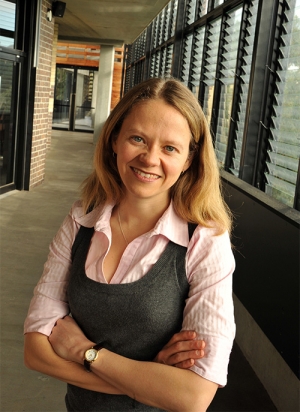Lower prices gets more fruit and veg in the shopping basket
Research news
Researchers from Deakin University's Centre for Physical Activity and Nutrition Research (C-PAN) have highlighted the importance of lower prices as a mechanism to promote the purchase and consumption of fruit and vegetables, after providing the first Australian evidence that cutting prices can be an effective way to get people to buy more fresh produce.
In a study published today in The American Journal of Clinical Nutrition, the C-PAN “Supermarket Healthy Eating for Life” (SHELf) trial found that a 20 per cent price reduction in fruit and vegetables resulted in increased purchasing per household of 21 per cent for fruit and 12 per cent for vegetables over the price reduction period.
Crucially, the study also found that the price reduction worked equally well across both low and high income groups – good news for low income groups who are at particular risk of poor diets and associated ill health.
The study, the first of its kind ever done in Australia, was led by Professor Kylie Ball from C-PAN and focused on female primary household shoppers.
”Women remain primarily responsible for food selection and preparation and as household food ‘gatekeepers’, represent important targets for nutrition interventions.
“We also know that individuals from socioeconomically disadvantaged backgrounds tend to have lower intakes of fruits and vegetables and higher intakes of energy-dense, nutrient poor foods than their more advantaged counterparts.
“High costs are often given as a reason that people don’t eat more fruit and vegetables, but until now we didn’t know much about how effective price reductions might be.
“A staggering 95 per cent of the Australian adult population do not eat enough fruit and vegetables for good health, so strategies to help people to eat more fruit and vegetables are urgently needed,” she said.
The C-PAN study is the first rigorously designed trial in Australia and one of only a few in the world to test how price reductions in real world settings where people select and purchase food influence purchases of different foods and beverages.
“Improving the diets of Australians is a complex issue that needs a comprehensive approach including education as well as pricing strategies on fresh produce.
“Consideration needs to be given to national or state-based nutrition programs targeting high need, low-income families, that address economic barriers to healthy eating over the longer-term, ” said Professor Ball.
The SHELf study findings are very timely given the recent publication of the World Health Organisation report “Using price policies to promote healthier diets”.
C-PAN’s work in physical activity and nutrition is leading the world globally in numerous areas including research into disadvantaged communities, children’s health and healthy ageing.
The SHELf study was conducted by Deakin University’s Centre for Physical Activity and Nutrition Research (C-PAN) with support from Coles and the National Heart Foundation of Australia.
The SHELf study was supported by a National Health and Medical Research Council Project Grant, ID 594767.
Share this story
 Professor Kylie Ball
Professor Kylie Ball
